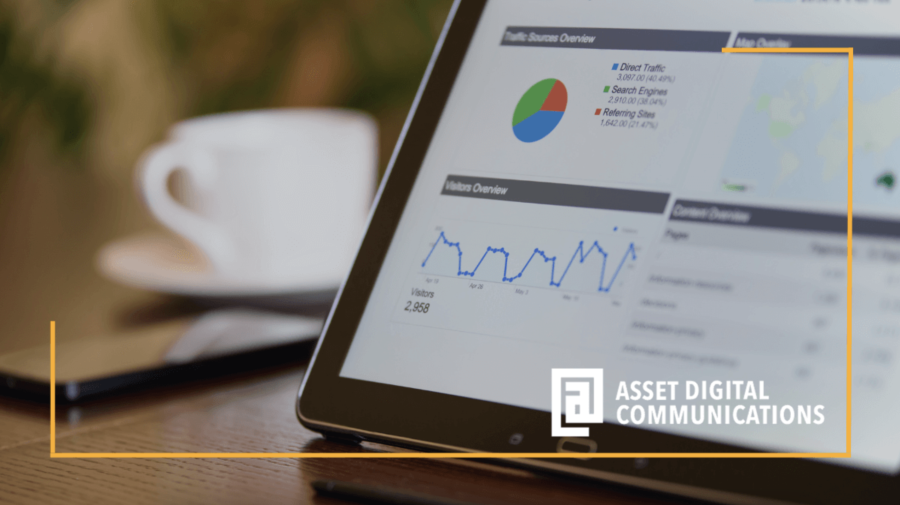Improve Website Conversion Strategies with a Digital Agency
What’s a business without customers? Don’t worry, you don’t have to answer that. It’s rhetorical, but you get the drift, right?
Getting new customers and retaining old ones is mission-critical for EVERY business, and that’s why businesses, big and small, focus a sizable chunk of their resources on marketing and sales. However, for small and medium-sized concerns, marketing comes at a cost. Often, marketing budgets are topped up by diverting precious resources away from other critical functions, and every dollar counts.
With tight budgets, a lackluster website conversion strategy can spell disaster. Marketing is not just about the number of clicks or visitors; it’s about turning those clicks into customers.
So, if you are wondering how to reduce the gap between your efforts and outcome – between cost and conversions – then you need to focus on strategies to boost customer acquisition.
One way to do this is to partner with an experienced digital marketing agency, but before you consider that approach, here are some details you need to know about conversion strategies.
What is a Website Conversion Strategy?
A website conversion strategy is a detailed and planned approach to turning visitors into valuable customers. It combines a number of techniques that touch upon optimizing content, design, and user experience to achieve specific business goals.
Imagine your website is a storefront. Let us further assume that it is located in the right spot with lots of bustling traffic, and you get a decent number of people entering your store.
Once they enter your store, your layout, your store’s décor, its sales staff, and, of course, the products and prices are responsible for nudging casual window shoppers to open their wallets.
That’s conversion.
In the digital world, it is your website’s layout, landing pages, CTAs, visual appeal, page speed, and UX that convert interested visitors into customers.
In theory, all this sounds straightforward enough. However, you don’t know what the buyer is thinking, whether they are considering your competitors, how much they are willing to spend, or how badly they need what you are selling. Between browsing and buying, there are tons of decisions and reasons that could derail the process.
While you can’t control customers and their decisions, you can make your website more conversion-friendly. Thinking holistically, logically, and strategically about the various factors that increase conversion ratios is the starting point of a website conversion strategy.
Why is a Website Conversion Strategy Important?
Each click on your site is marketing money spent on getting visitors through the door; you cannot afford to waste even one visit. To make sure your website is geared towards making every interaction count, you need to bring together various website elements and point them all in one direction—a sale.
Moreover, a well-executed conversion strategy is not just about the present; it is your insurance policy against economic uncertainty. It’s about acquiring as well as retaining customers and safeguarding your business’s future.
Common Roadblocks in Conversion Strategies
There are a number of reasons why your website is facing a poor conversion rate. However, before you jump in and start analyzing and optimizing your website, take a moment to set some benchmarks.
Find out your industry’s average conversion rate. You also need to factor in your niche, goals, traffic channel, and audience demographics.
For example, the eCommerce sector usually has a conversion rate that hovers around 2.5% – 3%, travel businesses see 3-4%, and the global average for landing page conversion rate across all industries is around 2.35%. It would be best if you aimed for twice the global average to be ranked well ahead of your peers.
Calculate your conversion rate by dividing the number of conversions by the number of visitors and multiplying that number by 100 to get a percentage.
Let’s discuss some common problems that lead to low conversion rates, along with simple strategies to improve website conversions and ROI:
Poor website design and user experience
A website that is hard to navigate, has poor visuals, uninteresting or confusing copy, or a bad layout is likely to keep visitors from converting into customers.
Solution: Create attention-grabbing, relevant design, content, copy, and visuals. Rebuild your website, keeping UX best practices at the centre of your efforts. Fine-tune your approach with A/B testing of select elements.
Slow load times
A long wait time for page loads is another reason that leads interested visitors to bounce off the website.
Solution: Use tools such as Google PageSpeed Insights or WebPageTest to test your page speeds and follow all their recommendations to optimize for faster load times. A full-service digital marketing agency can help with the technical side of this.
Unclear or confusing calls to action
If your visitors are not able to find a clear path to conversion, they could leave before taking the next step.
Solution: Focus on designing killer calls to action (CTAs). Make them eye-catching and ensure your copy is enticing enough to motivate users to take action. Do lots of A/B testing on your CTAs to find the best ones.
A complex checkout process or long forms
Visitors want quick action, and they do not want to share too much information. If you have a CTA that requires them to fill out a form, keep it simple and ask for the minimum amount of information.
If your business leads them to a checkout process, make sure it is fast, requires minimum clicks, is user-friendly, and is as close to industry standards as possible.
Solution: Strip down your forms and checkout process to the minimum without losing important information. Use targeted remarketing, abandoned cart recovery tools, and AI-led recommendations to nudge visitors who dropped out at the last step to revisit their decisions.
Poor customer support and engagement
We often come across sites that have a contact form, but no one at the other end is reading or replying to these queries. Not managing your customer outreach is a critical mistake that could cost you.
Solution: Test your entire funnel periodically to find gaps, broken links, and dead ends. If you cannot afford to allocate dedicated resources to manage your customer queries, consider automating some parts of the process with a chatbot.
Lack of understanding of your target audience
On a more holistic level, you could reconsider your understanding of your target audience’s needs and motivations. A mistake in developing your consumer persona could be a roadblock that leaves visitors unhappy with what they find on your website.
Solution: Work with an experienced marketing professional or agency to re-evaluate your current and potential customer base. Build detailed customer personas and focus your content, design, and message on them.
Bonus: Use social proof
If you are not already doing it, then add testimonials from satisfied customers, social media engagement, and trust badges to your website. Social proof has a powerful psychological effect on visitors, and seeing the experiences of satisfied customers increases visitor confidence and, ultimately, conversions.
The Role of a Digital Marketing Agency in Your Website Conversion Strategy
Conversion is critical, and conversion rate optimization is complex and a bit technical. While you can make a start with your in-house team, we do recommend bringing in experts at some point.
An agency can help you audit your current status, revisit your original methodology, and, if needed, recreate a website conversion strategy that aligns with your business goals and fill any gaps that come up in the audit.
A full-service digital marketing agency has the 360-degree skills, experience, and tools to formulate a website conversion strategy that considers a multitude of factors across technical and off-page SEO, design, content, and data. This holistic approach helps to ensure the best chance of success for your business.
Additional benefits you can gain from utilizing a digital marketing agency in your website conversion strategy:
Measurable Results from a Trusted Partner
If navigating web conversion feels like you are blind in a sea of fog, then a digital marketing agency can be a veteran captain equipped with the latest GPS. A trusted and experienced partner can help you find a clear path to measurable success, safely and quickly.
Customizing Your Conversion Tactics
A full-service digital marketing agency has the expertise to pinpoint problem areas and show you how to solve them. They can interpret business and marketing data and turn it into actionable insights.
That is just one part of their offering; an agency can also marry your business insights and needs with their skills to craft custom-made strategies that boost conversion. There is no one-size-fits-all solution to improving conversion rates; each business has a unique combination of offerings, goals, target clients, and business challenges. A tailored approach considers all these factors, as well as your marketing budget and current resources, to suggest an approach that is optimized for positive results.
Leveraging Extensive Expertise and Innovative Tools
A seasoned professional – in any field – comes equipped with technical know-how and access to tools that laypersons would most likely never even encounter. This is especially true in the world of digital marketing, where data, its analysis, and various marketing plugins and tools require specialized knowledge, and trends evolve often.
A full-service marketing agency can call on the combined expertise of a diverse set of team members to form and execute innovative strategies. This level of specialized effort is impossible to replicate with a small in-house team that is already wearing multiple hats in the business.
Continuous Improvement Through Data Analysis
In the digital world, change is a daily reality. Trends, tools, and technology evolve fast, and strategies that made sense last year are no longer worth the paper they were printed on.
To stay competitive and relevant to your target audience, you need to continuously tweak your conversion strategy. A digital marketing partner can help you track user behaviour, analyze website traffic, and adapt to changing market conditions. They can also unlock deeper insights from your customer or marketing data and integrate these into your decision-making process.
This process of continuous improvement ensures that your conversion strategy remains effective and updated at all times.
Get Ready to Chart a Course to Conversion Success
To sum it up, a successful conversion strategy isn’t just about attracting visitors to your website; it’s about turning them into loyal customers and maximizing your marketing ROI.
In the current uber-competitive digital marketplace, a well-crafted website conversion strategy executed by an experienced agency can be a roadmap that puts you on the path to success. With their support, expertise, and tools, you can navigate the complex waters of digital marketing.
If you’re a small or medium-sized business owner looking to enhance your website conversion strategy, don’t hesitate to reach out to us. We can help you customize online marketing tactics that work for your unique business needs, stay on top of changing trends and customer needs, and make every click count.
Suggested Reads:



